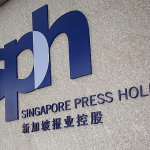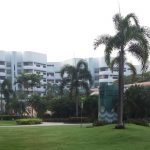Privatise older HDB estates before they become a social problem suggested Tan Jin Meng, a postgraduate student at the Lee Kuan Yew School of Public Policy. Tan, writing for Channel NewsAsia, referred to the public unease that the promise of owning a 99-year-leasehold HDB (Housing & Development Board) flat as an investment for old age is no longer valid today. He said that in the Housing and Urban Development Company (HUDC) flats, there is a precedent for such privatisation.
https://www.icompareloan.com/resources/99-year-leasehold-hdb-time-bomb/
HUDC flats were first built in 1974 to cater to a sandwiched class of Singaporeans who could afford something better than HDB flats, but yet still find private housing unaffordable. These flats stood out for their roomy interiors. The earliest ones had units which ranged between 139 sqm to 158 sqm. Besides their spaciousness, HUDC projects also boasted better amenities, compared to HDB flats, like covered car parks and landscaped grounds.
Tan pointed out that by the “1990s, as the HDB programme gained momentum and catered to most classes of buyers with offerings such as executive flats, demand for the HUDC programme declined.”
In 1995, the Government announced plans to privatise HUDC as long as 75 per cent of the owners in a project agree to it. The owners also had to buy over the common areas and pay HDB a fee to privatise the development.
“One by one, HUDC estates went private. Many went en bloc, with the developer picking up the tab for a lease top-up. Others simply topped up their leases,” Tan said.
Tan proposed that older HDB estates can be privatised in a similar manner.
Table of Contents
“Privatising HDB flats frees the way for owners of older HDB flats to maximise their ownership and monetise their houses as private property owners.”
The process of privatising HUDC was drawn out over several decades and ended in 2017 with the privatisation of Braddell View. Tan advocated the the privatisation of flats in older HDB estates can be “similarly managed to ease the transition and avoid supply shocks, concurrent with HDB managing the supply of new flats.”
Tan said that such a move will “allow people to have more choice, less reliance on Government when it comes to housing, and have the HDB refocus its social mission.”
Some seniors have expressed frustration at the drastic price drop of flats in older HDB estates. This has affected their ability to downgrade and live on the profits from selling their flats.

The Government implemented market pricing and the asset enhancement policy for public housing in the late 1980s. The aim of this programme was to allow heartlanders a chance at enjoying the appreciation of their HDB flat – which is a key asset for most of them. The programme led to more than 10 fold increase in the price of HDB flats in the next 30 years.
In 2011, Singapore’s first Prime Minister Lee Kuan Yew urged Singaporeans to not sell their HDB flats as the price will go up in time. At a community party for residents of Buona Vista Court, the late Mr Lee said: ‘Your flat is your most precious property,’ he said. He added: “the Government can help to raise the value of flats, but Singaporeans must also look after their property and surroundings.”
The current Minister for National Development Lawrence Wong, however, dropped a bombshell on the hopes of flat owners who had hoped that the price of their homes will keep on increasing. Writing for his Ministry’s blog in March last year, Mr Wong asked HDB flat owners to not assume that all old HDB flats will become eligible for SERS (Selective En bloc Redevelopment Scheme). He said that “only 4% of HDB flats have been identified for SERS since it was launched in 1995”, and that “it is only offered to HDB blocks located in sites with high redevelopment potential”.
HDB’s chief executive recently also echoed Mr Wong’s views that the bulk of public houses will have zero value at the end of their lease period. Speaking at an Institute of Policy Studies’ lecture, the chief executive Dr Cheong Koon Hean suggested that buyers of flats in older HDB estates should pay less. She called such buys “prudent choice”. She explained that the 99 year lease was calculated to last 2 generations, and that there are many ways to monetise the HDB flat.
https://www.icompareloan.com/resources/hdb-chief-shorter-leases-pay-less/
Some socio-economic commentators have suggested that flats in older HDB estates have to be bailed out by a “wall of money”. One such commentator, Chris Kuan, said, “the only way to avoid or minimise the destruction of household equity caused by the non-recourse 99 year HDB lease is to monetize the flat – through the Lease Buyback Scheme (LBS), the Selective Enbloc Redevelopment Scheme (SERS) or to downgrade.”
He added: “Of the three, only the last option requires someone to buy the flat from you and that someone will face household equity destruction (possibly even worse than what you faced, depending on price).”
https://www.icompareloan.com/resources/hdb-flat-owners-older-bailout/
Some commentators have suggested that the problem of the aging flats which are coming to the end of their leasehold period would be a political hot-button issue at the next General Election. Mr Kuan, for example, said:
“HDB flat owners have to ask, “how likely am I to vote against the PAP?”
If the answer is ‘not likely’, then the politicians being typical politicians will take it as an endorsement of their policies and will do nothing. If the answer is ‘yes’ very likely, that means the people are very very angry and the Government will act to correct it.
Hence, HDB flat owners can signal the problems they face with aging homes which are running out of lease through their vote.”
—
If you are buying a HDB flat and are unsure about which home loan package would be the best fit for you, you should speak with a mortgage specialist at iCompareLoan. We can assist you for free in your choice of Loan packages with the best home loan interest rates.






